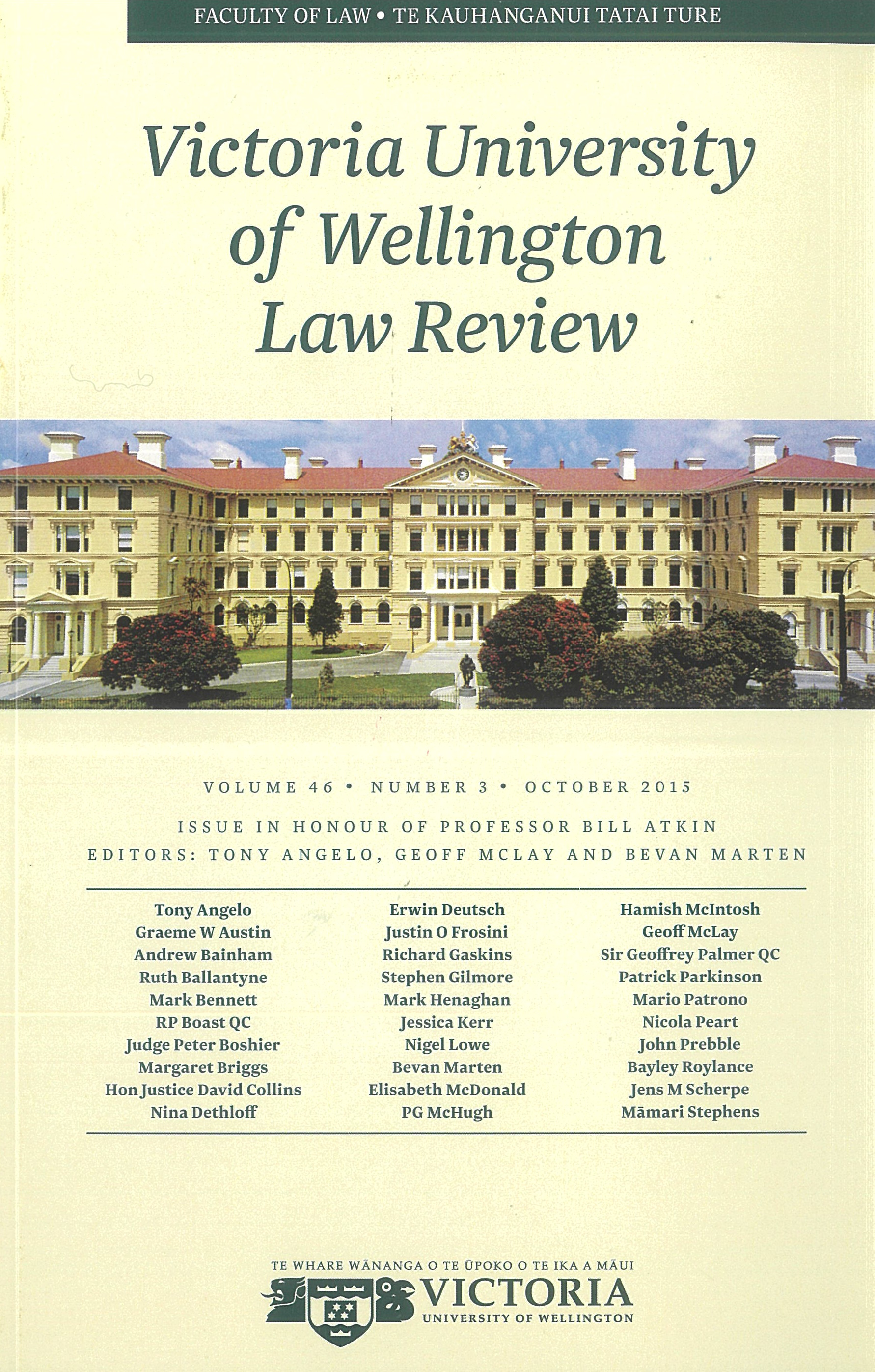Changing Family Forms: Challenges for German Law
DOI:
https://doi.org/10.26686/vuwlr.v46i3.4908Abstract
The diversity of family life is increasing. The rise in unwed parents, divorce rates, re-partnering, same-sex partnerships and artificial reproduction have led to a great variety of family forms that are far apart from the concept of the marriage-based family underlying the German Civil Code of 1900. Despite substantial amendments, the Civil Code in many respects does not correspond to the existing diversity of present-day family forms. A brief outline of the societal changes is followed by an overview of the legal impact of different family forms on children and the key points that are presently under discussion in this field. Subsequently, the changes resulting from the appearance of new partners as potential new parents will be addressed. The current legal situation concerning parental responsibility, as well as its deficits and options for reform, will be reflected upon, mainly with regard to German law. Developments in other countries, particularly in New Zealand, are taken into account.
Downloads
Downloads
Published
How to Cite
Issue
Section
License
Authors retain copyright in their work published in the Victoria University of Wellington Law Review.


